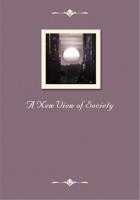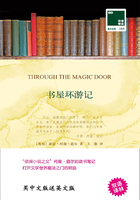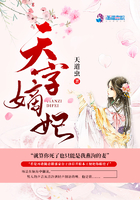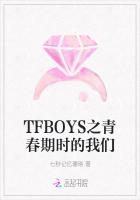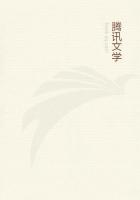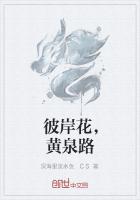Developing Self-confidence
Confidence is a feeling—an inner fire and an outer radiance, a basic satisfaction with what one is plus a reaching out to become more. Confidence is not something a few people are born with and others are not, for it is an acquired characteristic.
Confidence is the personal possession of no one; the person who has it learns it—and goes on learning. The most gifted individual on earth has to construct confidence in his gifts from the basis of faith and experience, like anybody else. The tools will differ from one person to the next, but the essential task is the same. Confidence and pose are available to us all according to our abilities and needs—not somebody else’s—provided we utilize our gifts and expand them.
One of the most rewarding aspects of confidence is that it sits gracefully on every age and level of life—on children, men, women, the famous, the obscure, the rich, the poor, artist, executive, teen-ager, the old. And you can take it with you into old age. There is nothing more inspiring than an old person who maintains his good will, humor, and faith in himself, in others, in the future. Conversely, the root cause of old people’s despair is a feeling of not being wanted, of nothing to contribute, no more to conquer and become.
Most people have more to work with than they realize. One noted physicist calls this unused excellencies and finding and releasing this potential in ourselves is one of the major challenges of modern life. The great danger is not that we shall overreach our capacities but that we shall undervalue and under-employ them, thus blighting our great possibilities.
The goal of life is not a problemless existence, which would be unbearably dull, but a way to handle problems creatively. That word “problem” may sound a little prickly, but it only means a question put forth for solution, and actually life consists of a series of problems-and-solutions, each different from the last.
Confidence is delight—delight in living, in being who you are, in what you do, in growing, in the endless and sometimes exasperating adventure of what it means to be human. The teacher who delights in teaching has no time for bogging down in a swamp of doubt that he or she is doing it “right”, and they are well aware that they can become a better teacher tomorrow, but only by doing their best today and enjoying today. So, too, the mother who delights in being a mother does not worry over-much about whether she fits the rules. She is not the mother, after all, of something material but of a living child.
Rules can often be a guide to successful living, but they are not a substitute for living. Rules never quite keep up with reality, because rules come from experience, not the other way around. Life happens, and it is infinitely inventive. It will always outrun and outmaneuver any attempt to bottle it up in a cut-and-dried system, for life is perpetual becoming. When life turns your wisest plans or best rules upside down, throw out the plans and bend with the circumstance. You will find powers you did not suspect, and possibilities undreamed of.
Confidence is not always winning, not always victory. Indeed, it is that very quality in humanity which refuses to stay defeated. A kind of stubborn cheerfulness. Remember there are two things you can do with mistakes, you can run away and you can grow.
自信是一种感觉——一种能使人们获得基本满足感的内在激情和外在光芒。它不是某些人与生俱来,而其他人则没有的品质,它是后天形成的。
自信可以通过学习获得,同时又能促使你不断学习,它不是某些人的私有财产。世界上再聪明的人也同其他人一样,以信念和经历为基础来培养自信。虽然不同的人所使用的工具也不尽相同,但核心目的是相同的。倘若我们依靠自己的能力,根据自己的需求,运用自己的才智使之不断增强,我们就可以做到自信且沉着冷静。
自信最令人欣慰的一点是,它不受年龄和生活水平的限制,时刻伴随着我们——无论是孩子、男人、女人、名人、平凡人,还是富人、穷人、艺术家、行政人员、青少年、老人都可以拥有自信。你甚至可以满怀自信地步入老年。一个老人对自己、对他人、对未来怀有美好的愿望,拥有乐观的心境和坚定的信念,这比任何事都更能激励人心。反之,无欲无求,不被人所需的感觉是老人绝望的根源。
多数人都比他们料想的更有作为。一位著名的物理学家把自信称为尚待利用的优势资源,认为开发并利用自信这种潜能,是当代生活的主要挑战之一。高估自己的能力并非最大的危险,而低估且不充分利用这些能力,则阻碍了潜能的开发。
没有问题存在的生活,并不是理想的生活。没有问题会单调得令人无法忍受,创造性地解决问题才能令生活有意义。或许“问题”一词听起来令人有点不舒服,但它只意味着一个被提出的需要解决的问题。实际上,生活就是由这一系列的提出问题和解决问题所构成的,每个问题都有别于前一个问题。
自信是令人愉悦的,它使生活充满了喜悦,让快乐包围你,快乐地工作,快乐地成长,人生的种种坎坷历程都会令你快乐。教师以教书育人为乐,无暇对他的所作所为是否正确表示怀疑。他们清楚地知道,只要尽心尽力地工作,有朝一日定会成为一名优秀的教师。母亲也如此,她们也不会过多地担心自己是否适合母亲这一角色。毕竟,她照料的是活生生的孩子,而不是无生命的物质。
规则通常是生活成功的向导,而非生活的附属物。规则并不完全与现实相吻合,因为它源于经验,而非其他。生活是一种无从定义的发明创造,总会超越那些束缚它的规章制度,因为生活始终处于变化之中。当生活把你精心制定的计划或准则打乱时,舍弃那些计划,适应环境吧,你会发现意想不到的力量,而不可能的梦想也会得以实现。
自信并不能战胜一切。但它的确是人类不甘于失败,勇于进取的品质。谨记,面对错误,你可以采取两种态度:逃避或成长。
1. The tools will differ from one person to the _________ , but the essential task is the_________ . Confidence and pose are available to us all according _________our abilities and needs—not somebody else’s—provided we utilize _________gifts and expand them.
2. The great danger is not _________we shall overreach our capacities but that we shall undervalue and under-employ them, _________blighting our great possibilities.
3. Rules can_________ be a guide to successful living,_________they are not a substitute for living. Rules_________quite keep up with reality, because rules come from experience, not the other_________ around.
1. 多数人都比他们料想的更有作为。
2. 自信是令人愉悦的,它使生活充满了喜悦,让快乐包围你,快乐地工作,快乐地成长,人生的种种坎坷历程都会令你快乐。
3. 自信并不能战胜一切。但它的确是人类不甘于失败,勇于进取的品质。



